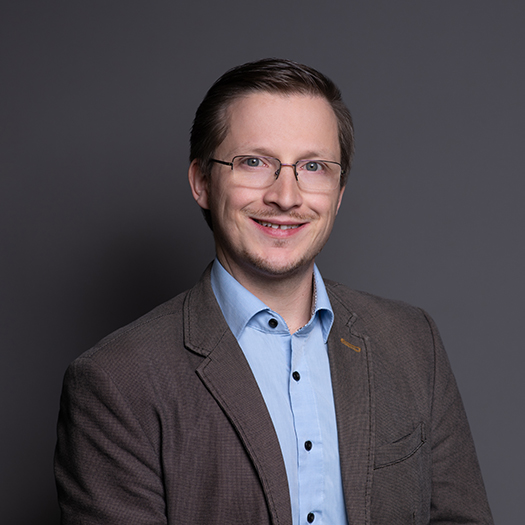ZEW Sails into the Future of Work on the MS Wissenschaft
Dates and NewsOn 9 August 2018, the exhibition ship MS Wissenschaft cast anchor at the Stresemannufer in Bonn and welcomed its first guests on board for a press conference and tour of the exhibition entitled “Working Life of the Future”. ZEW economist Dr. Ulrich Zierahn was on board to present the interactive touch-screen exhibit “Fit for the Job Market of the Future” put together by the ZEW Research Department “Labour Markets, Human Resources and Social Policy”.
Are robots going to take over our jobs? Do machines make better employees? How can we succeed in an increasingly digital working world? The interactive ZEW exhibit addresses these questions, showing visitors to the exhibition which labour tasks have the potential to be automated, i.e. taken over by machines, and which do not. Visitors can select a profession from a list provided on screen and have a look at the various tasks and responsibilities this job usually entails. The screen will then show them which elements of the job have the potential to be automated in the future – and in which fields human skills will become all the more important as a result. “Digitalisation means change, but not the elimination of entire professions. Our exhibit offers a fun way for guests on board the MS Wissenschaft to see for themselves how having qualifications, assuming new tasks or gaining new skills can make them fit for the job markets of the future,” says labour market economist Dr. Ulrich Zierahn.
Calling in at ZEW’s home port
The MS Wissenschaft will also be anchored in Mannheim on the Rhine Promenade in Lindenhof from 23 to 25 August 2018. Commissioned by the German Federal Ministry of Education and Research, the floating exhibition will this year once again visit cities along the German waterways before heading into Austria. The exhibition is curated by Wissenschaft im Dialog and contains exhibits based on the latest research from member institutions of the Fraunhofer Gesellschaft, the Helmholtz Association, the Leibniz Association and the Max Planck Society, as well as DFG-funded projects, universities and other partner organisations. The exhibition is suitable for ages 12 and over. Entry to the exhibition is free. The exhibition is open daily from 10 a.m. to 7 p.m.



